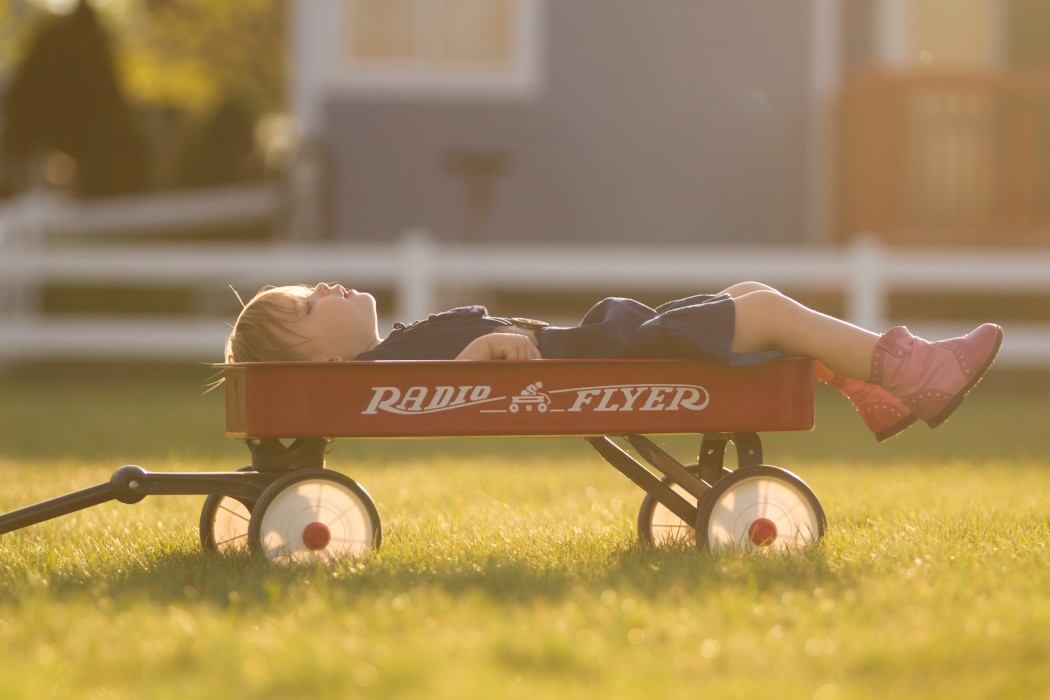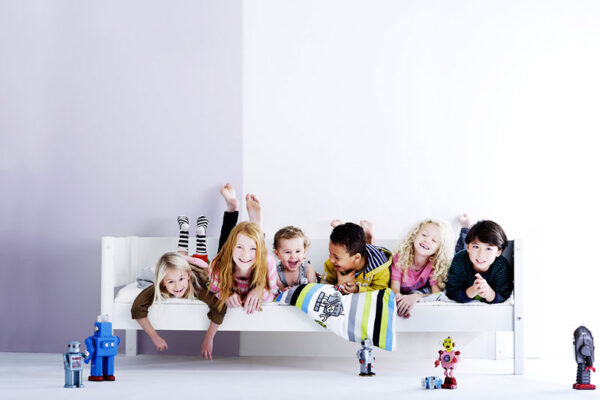“Mommmmmmy, I am bored. I don’t know what to do – can you please come play with me?”
I just got home from work and was about to put away all the groceries before making a little snack for my youngest and then taking a much-needed five-minute break on the couch. Before I could turn round, I was building a giant Lego castle with my daughter in the living room, with tons of small bricks. To be honest, I didn’t have the time or energy to play, but I couldn’t handle going into a discussion or letting her be all by herself.
In my book: Play The Danish Way – A Guide to Raising Balanced, Resilient and Healthy Children through Play I address why being bored is so valuable and why we shouldn’t distract our children all the time. This is something a lot of us do. The truth is that we don’t have to entertain them. Doing nothing is actually really good for them, as it encourages their inventiveness and is healthy for their development.
In Denmark play is not seen as some lazy luxury but as a cornerstone of development. Children enjoy exploring the world on their own if they get a chance. It is through free play (not necessarily initiated by adults) that creativity and thought-processes are best developed if given an opportunity to digest everyday impressions in their own way. That means sometimes letting them be on their own. If they are bored, it is still okay.
If we’re always on “standby”, ready to come up with some kind of entertainment the minute our children need us, we will raise children who don’t know how to cope with being alone. They will get used to others coming up with ideas for them, instead of relying on themselves. It does not mean that we should completely leave our one-year-old child to herself—we should always check on whether she is too much alone, but we should still allow her to have some time by herself.
Most often children up to two to three years old still need us around as adults to guide and inspire them. The earlier children learn that it isn’t wrong to be bored, the better it is for them because boredom can motivate them to engage socially as well as encourage more experimental, creative and meaningful conduct in the long run.
“Come, Sweetheart, I need you to peel carrots.” My daughter jumped up on the kitchen table and the smile on her face expressed her satisfaction. This time she needed my presence, I could feel, but sometimes she just comes to me to get my “approval” of her doing nothing.
Some tips to get started:
1. Make a choice. Is it okay for you having relaxing moments? If so, create an atmosphere at home where it feels okay to have your guard down and do absolutely nothing.
2. Invite your child to participate in things that you do. It can be anything from playing board games to cooking or cleaning. Children just love to participate and contribute.
3. Start by playing with your child, if you sense he or she needs this, but try to let them take over and control the game themselves after a while.
4. Make sure there are no planned activities every day. Postpone your shopping, do not visit anyone, invite guests or playmates home another day. It’s important to prioritize days when you do absolutely nothing.
5. Listen to your child’s suggestions. When your child’s restlessness abates, her imagination will start taking over. Sometimes the child will start a game, and he or she may come and need your help to gather materials and look for things. The child can also come up with direct suggestions, which are important to listen to: “Can I make a cave?” “Can we bake a cake?” “Should we invite Grandma?”
Help the child on its way by saying: “What a good idea, honey!” “What do you need to make a cave?” “What cake do you want to bake?” “If we invite Grandma, what do you think we should do?”
6. Don’t let your bad conscience take over. We often overcompensate by dropping whatever we have in our hands to give our children the feeling of our presence in their lives. Don’t worry—doing anything is healthy as long as you still prioritize time together when you are totally focused.
7. Be aware that it takes time to gear down and accept doing nothing. It may take several days before your child has completely switched to a more relaxed mood. Boredom often shows up as an expression of restlessness, as it can be difficult to change from a hectic everyday life.
8. Trust this. Remember the times when you were a child doing nothing. To me, they were moments I treasured.
This article was originally published on Psychology Today





